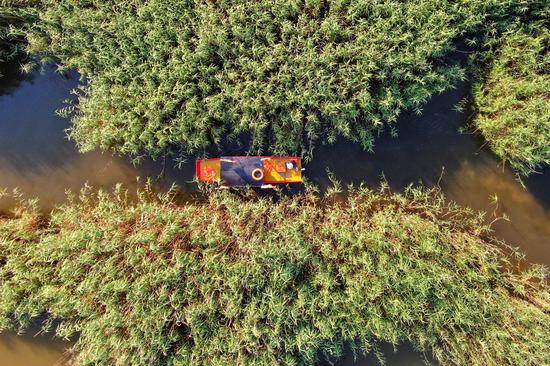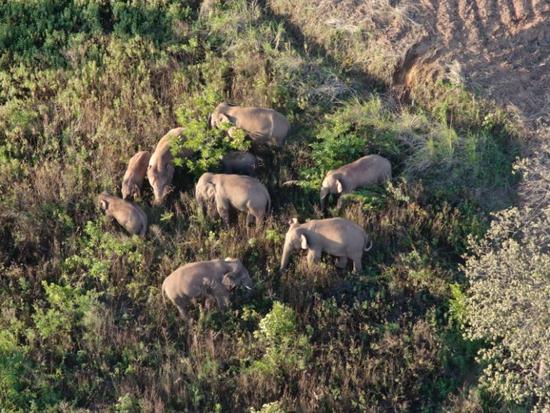Detailed plan drawn up to restore animals' habitats
In the past month, Ming Qingzhong, a university professor in Yunnan, has been closely monitoring 15 wild Asian elephants that have traveled 500 kilometers north from their habitat in the south of the province.
The animals have made headlines in China and overseas, with local authorities going to great lengths to monitor them and keep them away from residential areas.
Ming and his team from the Tourism and Culture Industry Research Institute at Yunnan University of Finance and Economics in Kunming, the provincial capital, have proposed building an Asian elephant national park, aiming to better manage and restore the giant creatures' habitats.
"Such a national park urgently needs to be built. It is time that our proposal attracted much-needed public attention," Ming said.
A detailed plan has been drawn up to restore the elephants' habitats and to manage human communities in the region, including roads, public facilities, forests and farmland.
"Building a national park will fundamentally resolve the human-elephant conflict. Many people ask where these elephants are heading or where they should remain when they have finished roaming. A national park is the best destination," Ming said.
The Asian elephant, which is listed as endangered on the International Union for Conservation of Nature Red List of Threatened Species, enjoys Class-A protection in China-the same level as the giant panda.
Before the 1970s, the species was threatened by a number of factors, including a surge in the human population, reduced forestry areas and illegal hunting. Elephant numbers dropped significantly.
Due to determined protection efforts in recent decades, the numbers have risen from about 170 in the 1970s to around 300, according to the Yunnan Provincial Forestry and Grassland Administration.
The elephants in Yunnan live in the south of the province, which includes Xishuangbanna Dai autonomous prefecture and the cities of Pu'er and Lincang. Of the three locations, Xishuangbanna has the most elephants.
To protect the animals and other wildlife, the authorities in Xishuangbanna have expanded the prefecture's nature reserves from 240,000 hectares in the 1980s to 414,660 hectares today.
In 1996, a Wild Asian Elephant Valley was established-the prefecture's biggest wild animal rescue center. In 2009, China's first Asian elephant breeding base was established in the valley.
Guo Xianming, director of the research institute at Xishuangbanna National Nature Reserve, said: "The elephants will not stay forever in nature reserves. It is natural for them to expand their territory when they have a growing population, require a larger habitat and more food."
In past decades, the prefecture has adopted strict laws and regulations to protect its forests. However, these measures have resulted in rapid growth of vegetation, especially large trees, Guo said.
"Such efforts are crucial to better rainforest recovery, but might also lead to problems with the elephants' natural food supply," he said, adding that the expansion of invasive plants has made growing conditions more difficult for the animals' preferred food.


















































